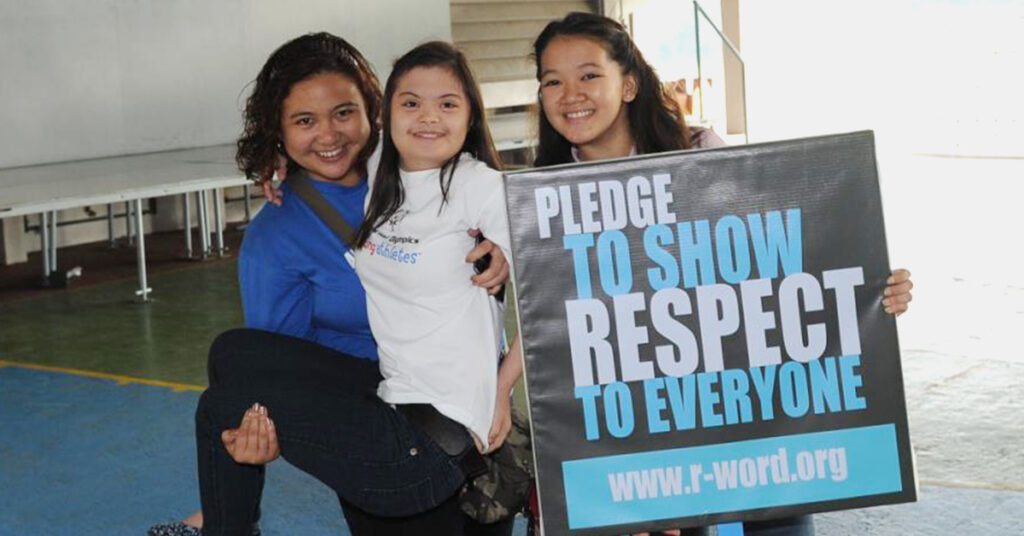This year, we are championing change for Filipinos with intellectual disabilities
Big changes can happen only when small communities take part in the movement. Special Olympics Pilipinas is one of small communities taking active part in a global movement of people creating a more inclusive world for every single person, with or without a disability.
Special Olympics is the world’s biggest sports organization where people with intellectual disabilities have access to proper training for sports and empower them through engaging in sports.
The mission of Special Olympics is to provide year-round sports training for people with intellectual disabilities to give them the opportunity to develop physically, mentally, and socially, and to drive inclusion through Unified Sports and Unified Schools.
What is the Spread the Word campaign?
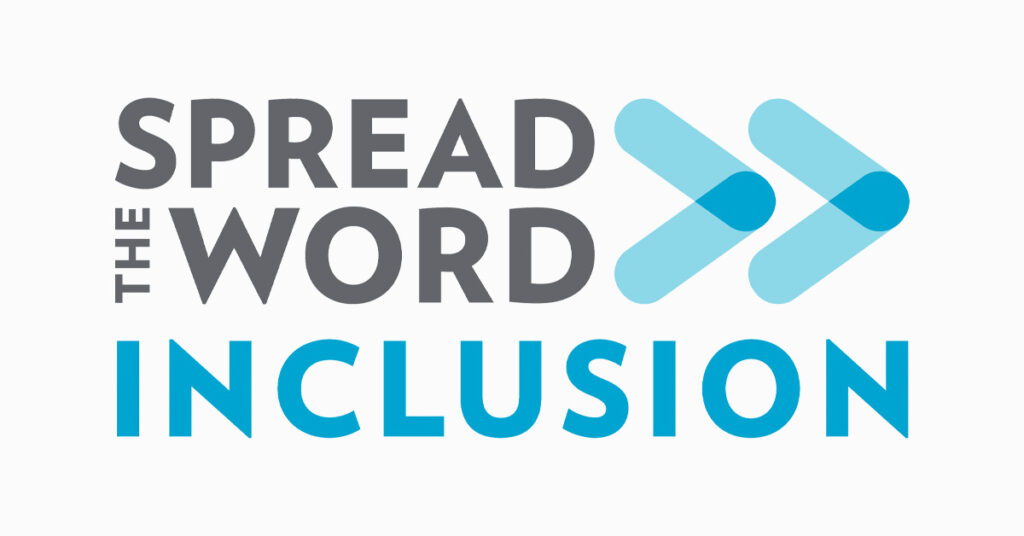
Every first Wednesday of March, Special Olympics and Best Buddies, another international organization for persons with intellectual disabilities, celebrate Spread the Word, a global campaign that aims to engage people to increase inclusivity for everyone through grassroots actions. Nation leaders are encouraged to make their respective public sectors more accessible to people with intellectual disabilities in terms of learning, working, and living.
This year, the theme of the Spread the Word campaign is “Champions for Change.” Its goal is to recognize people around the world who make positive efforts in building a more inclusive world for everyone. These people leave an impact on society by shattering the misconceptions tied to people with intellectual disabilities.
Championing change
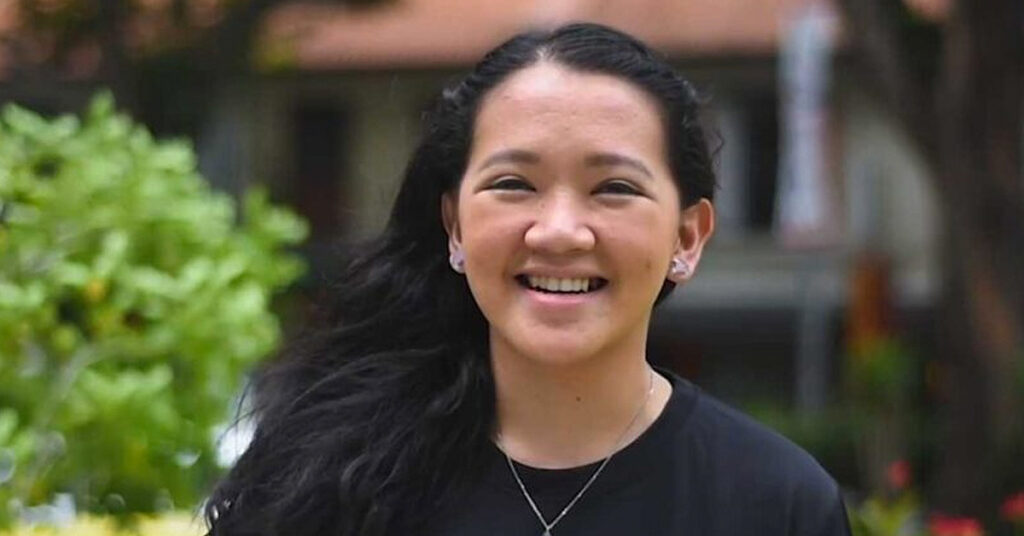
In the Philippines, actions to solve problems with equal access to education, healthcare, and employment are being taken priority by the government. With that said, there isn’t enough manpower to focus solely on the problems of the marginalized group. Developments in infrastructure to accommodate the needs of people with intellectual disabilities are not enough as the concerns in physical, mental, emotional, and social health keep growing.
Along with the insufficient programs, the majority of households with a person with an intellectual disability are suffering from poverty, making it almost impossible for them to access quality healthcare. The same goes for families in the middle class because of the high cost of quality healthcare. Other than that, staff in public establishments and facilities are not properly trained to engage with people with intellectual disabilities.
Unfortunately, people with intellectual disabilities get the brunt of ridicule, prejudice, malice, and abuse in society. Because of certain limitations,they also face unemployment in their adulthood. Because their development is limited, including in the educational aspect, they also face unemployment in their adulthood.
The stigma against people with intellectual disabilities breaks through the dedication of local volunteers and advocates who work and speak for them. Isabela Dominique “Sashi” Montaña is one of these champions of change based in the Philippines.
Sashi is a graduate of the University of the Philippines with a Bachelor’s degree in Family Life and Child Development and has been a pioneer youth leader of Special Olympics Pilipinas for eight years.
She was a representative in the Global Youth Summits for the years 2013 and 2015, together with her unified partner Brina Maxino, as well as in the Special Olympics International Global Youth Strategic Planning Workshop. In 2014, Sashi was a special guest to the White House to celebrate Generation Unified with Special Olympics Athlete Leaders and Unified Partners from various Programs, hosted by the 44th President and First Lady of the United States, Barack and Michelle Obama.
She also served as a key organizing committee member of the Special Olympics Asia Pacific GenUn Youth Summit and Youth for Inclusion, in 2016 and 2019 respectively. Most notably, she was the co-chairperson of the Regional Youth Input Council from 2018 to 2019.
In October 2021, Sashi headed Lead To Include, the first national youth summit of Special Olympics Pilipinas, attended virtually by over 100 youths with and without intellectual disabilities from all over the country.
Volunteers like Sashi are some of the people who actively work towards a fully inclusive world, one where disability no longer is viewed as a disadvantage or hindrance for persons with disabilities—intellectual and otherwise—to live fruitful lives.
What does an inclusive community look like?
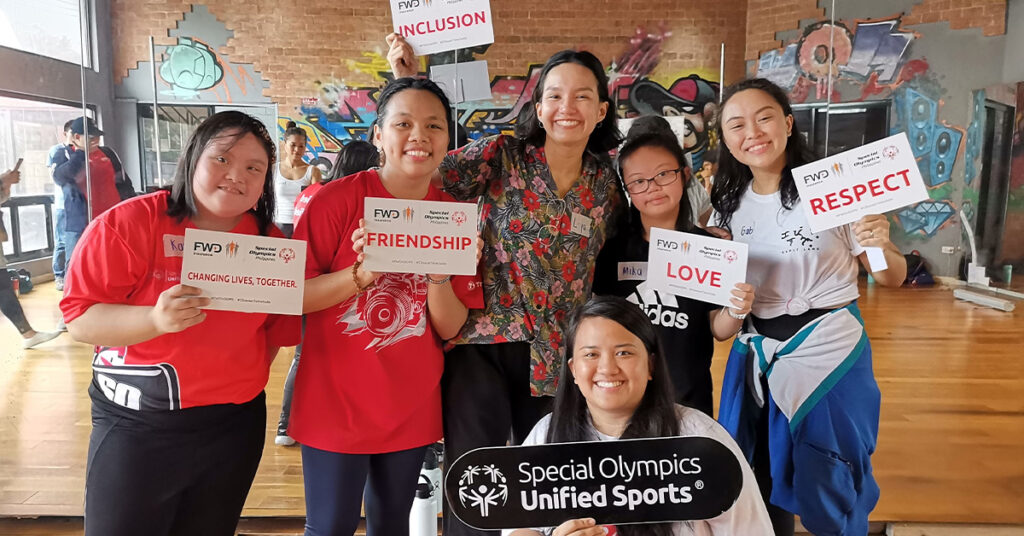
The problem associated with people with intellectual disabilities will start to dissipate when local communities acknowledge them and address their needs. It’s not enough for people to talk about it and accept the situation. Necessary actions must take place.
An inclusive community is where people with intellectual disabilities have access to proper education, quality healthcare, safe environment, and meaningful employment.
An increase in economic growth will be evident for countries that give focus on the education and training of people with intellectual disabilities. Without a doubt, access to quality healthcare should be given priority especially to families with financial problems. Allow them to maintain good health and to develop their strengths so that they are capable of fending for themselves in the future.
Schools that allow them to study with persons without intellectual disabilities will foster harmony and respect among their peers, minimizing the maltreatment that persons with intellectual disabilities can possibly face in the future.
Other than schools, there should be establishments wherein every person—with or without disability—can interact freely, comfortably, and without fear or restraint.
Companies should embrace diversity in the workplace and hire people with intellectual disabilities, recognize their abilities, and value them as employees.
Most importantly, an inclusive community is one where everyone is accepted, respected, and celebrated regardless of background, gender, race, or ability, and, given the opportunity to live, accomplish, and contribute to society like everyone else.
Build an inclusive world with Special Olympics
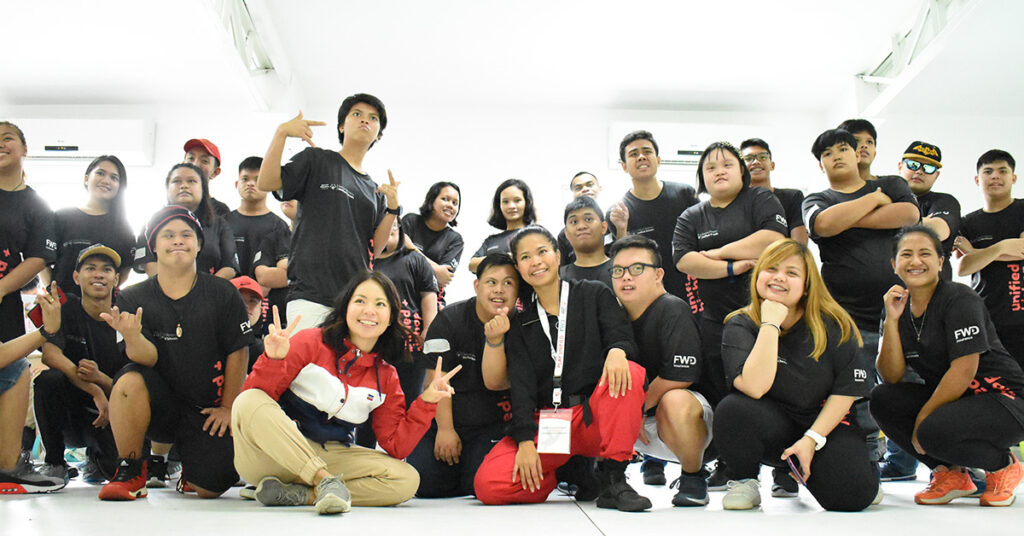
Special Olympics has been leading the way in this pursuit of full social inclusion. Our mission continuously makes it possible for people with intellectual disabilities to build friendships and relationships through sports. It is our hope to influence other organizations to open inclusive places for everyone.
Connect with us to know more about who we are, what we do, and the people we work with. Spread the word!

